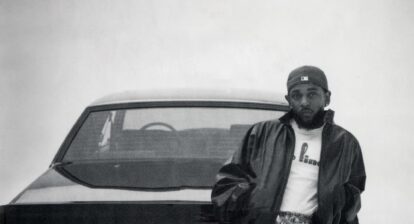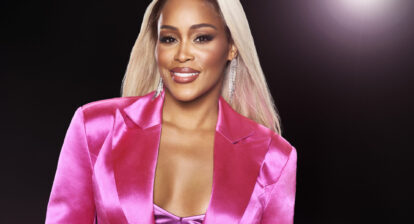
Doechii has soared from Tampa, Florida, onto music’s global stage with bold creativity, a GRAMMY win and critical acclaim—but online critics have ignited a polarizing discourse labeling her as an “industry plant.” But what exactly defines this elusive term, and does Doechii truly fit the mold?
Traditionally, an industry plant is viewed as an artist emerging seemingly overnight with substantial backing, visibility and connections—advantages not afforded to the everyday musician. It’s less about talent and more about influential allies, skeptics argue. But for Doechii, a Tampa native far from traditional music hubs like New York, Los Angeles or Atlanta, her ascent reveals a different story entirely.
“I want everybody to hear me clearly when I say, it is not a button, it is our brain,” Doechii passionately remarked onstage during a recent performance. “It is not a machine, it is our leadership. It is not a conspiracy, it is our vulnerability. It’s not an agenda, it’s God.”
Doechii emphasized collective effort over singular stardom, acknowledging the strategic brilliance of her predominantly female-led management and label team who stand alongside her in shaping her narrative and artistry.
Critics often highlight TDE’s prestigious roster—home to heavyweights like Kendrick Lamar, SZA and ScHoolboy Q—as evidence of industry manipulation. Yet, despite TDE’s stellar track record, the label also supports numerous artists who haven’t reached similar commercial heights. The label’s role is inherently dual-purpose: nurturing genuine talent while capitalizing on artists’ rising consumption. Doechii’s rapid rise isn’t a manufactured overnight success but rather the outcome of careful cultivation, talent and market-driven opportunity.
Doechii’s musical style is another point of contention fueling these allegations. Unlike mainstream hip-hop tracks dominating charts today—often marked by overt sexuality and radio-ready hooks—Doechii’s work, particularly her critically praised “Alligator Bites Never Heal,” defies easy categorization. Initially a slow burner among niche listeners, the project gradually captivated wider audiences, aligning perfectly with her GRAMMY campaign and elevating her profile significantly.
The digital age further complicates the discourse. Algorithms tailor content, often creating echo chambers around listeners’ established tastes. Many discovering Doechii through personalized feeds have enthusiastically embraced her unique blend of introspective lyricism and boundary-pushing aesthetics, propelling her to over 50 million monthly Spotify listeners. Conversely, others whose tastes differ remain unaware of her influence, bewildered by her prominence amid mainstream rap giants like Future and Metro Boomin, who are fellow GRAMMY nominees.
In 2019, Doechii independently released “Anxiety,” a track that creatively sampled Gotye’s 2011 hit “Somebody That I Used to Know.” Initially shared on YouTube, the song showcased her unique artistry and remained relatively under the radar. However, in early 2025, “Anxiety” experienced a resurgence, going viral on TikTok and leading to its official re-release on streaming platforms on March 4, 2025.
The song’s renewed popularity propelled it to the top ten on the Billboard Hot 100, peaking at number ten, marking Doechii’s first entry into the chart’s upper sphere. This trajectory exemplifies Doechii’s organic growth in the music industry, as audiences are now catching up to the innovative work she has been producing for years.
The days of music monoculture—shared listening experiences via platforms like “106 & Park” or “TRL”—have dwindled significantly, limiting organic cross-genre discovery. Yet, Doechii’s success underscores that genuine artistry still resonates, even when it defies conventional mainstream narratives.
In an era of curated streams and fragmented musical communities, Doechii’s trajectory stands not as a suspicious outlier but as a testament to authentic creative risk-taking, artist development and dedicated fan engagement—no industry plant required.




